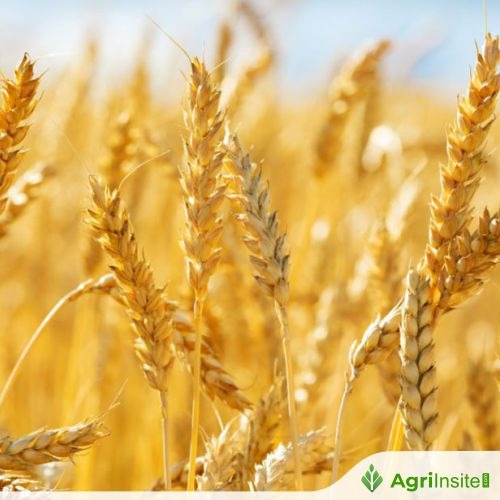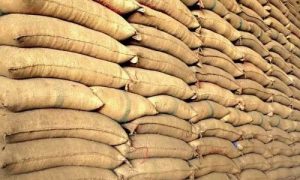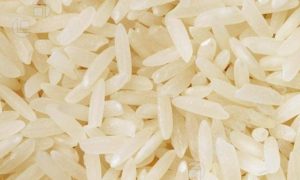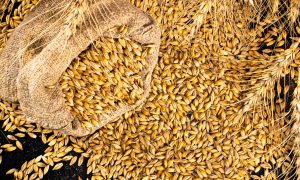Jawahir durum wheat becomes Morocco’s new hope

Morocco is accelerating seed production of Jawahir, a drought-resistant durum wheat variety, to commercial scale by 2027—two years ahead of schedule. Developed from wild Iraqi wheat genes, Jawahir has shown strong yields amid record drought. Officials call it vital for food security and resilience in dry regions.
As efforts to multiply the seeds of the new Jawahir durum wheat variety continue, farmers in drought-stricken areas of Morocco are getting a first glimpse of its potential.
This is what Gulf Agriculture reports. With the first rains falling in most parts of Morocco more than two months after the usual start of winter, the 2024-25 agricultural season in the southern African country is once again proving to be very dry. This threatens Morocco’s cereal production, including durum wheat, which is vital for food security. Durum wheat, used to make couscous, bread and pasta, is of great importance in Morocco, as it is around the world. In North Africa, people consume durum wheat products daily to get essential calories and protein.
The dry climate is nothing new for Morocco’s wheat farmers, who have managed to produce the grain with little water for centuries. However, record droughts over the past decade have left farmers struggling to make a living. Where golden harvests once dominated, brown, drought-stricken fields now dominate.
The Jawahir durum wheat variety, which means “precious stone” in Arabic, was bred using genes from Iraqi Triticum araraticum, a wild ancestor of durum wheat that was stored in the gene bank of the International Center for Agricultural Research in the Dry Areas (ICARDA). Released in Morocco in 2023 by the National Institute for Agricultural Research of Morocco (INRA), Jawahir is the result of more than a decade of research and testing. The process was supported by the Crop Trust’s Biodiversity for Opportunity, Livelihoods and Development (BOLD) project. Funded by the Government of Norway, BOLD strengthens food and nutrition security worldwide by supporting the conservation and use of crop diversity.
“Wild plants that have survived millennia of extreme climate conditions without the help of farmers have properties that can help us develop resilient crops that can withstand the pressures of today’s climate crisis,” says Dr. Benjamin Kilian, Senior Scientist at the Crop Trust, an international organization dedicated to preserving crop diversity and making it available to all.
Developing a new crop variety takes time and effort. As part of the BOLD project, scientists from ICARDA and INRA tested hundreds of durum wheat varieties enriched with genes from their wild relatives on Moroccan research farms. Since 2020, the most promising varieties, including Jawahir, have been tested by farmers. Planted by farmers during a severe drought that hit different parts of Morocco, Jawahir has once again proven its drought resistance. Farmers in the provinces of Essaouira, Tiznit and Safi have seen its strengths in their fields – Jawahir often yielded more than 1.5 tonnes per hectare, while older varieties in nearby fields struggled to reach 1 tonne.
“We have successfully developed a variety suitable for very dry conditions. It is truly a gem. The challenge now is to get it into the hands of farmers at scale. This is how we will change their lives for the better,” said Dr Filippo Bassi, ICARDA’s Chief Scientist and BOLD’s Lead Partner for Durum Wheat and Barley.
Farmers who have tried Jawahir are now convinced of its benefits. Drought tolerance translates directly into higher quality and more consistent yields, but it now requires a lot of seed. Typically, a newly developed variety in Morocco requires six years of seed multiplication to reach commercial scale. But at the time of publication, the Moroccan Ministry of Agriculture has accelerated the process for Jawahir due to its “national importance in the face of drought.” Despite the difficulties of this season, INRA and its private and public partners, including seed associations, have been working non-stop all the time. They want to reach commercial seed production two years ahead of schedule, by 2027.
The Moroccan Ministry of Agriculture’s Green Generation 2020-2030 strategic plan recognizes the importance of such an ambitious program to multiply and distribute certified seeds.
“Reaching commercial scale four years after the official release will set a new record for us, but thanks to the support of our government and all our seed partners, I feel it is possible,” said Moha Ferrahi, INRA’s director of breeding and genetic resources.
The BOLD project shows that there are concrete solutions to respond to climate change. We must invest in gene banks that protect crop diversity, promote breeding efforts to explore and exploit untapped crop diversity, and engage farmers in evaluating promising new varieties. But for all this to make a difference, government support is needed, as is happening with Jawahir.
To Read more about Wheat News continue reading Agriinsite.com
Source : Ukr Agro Consult

















